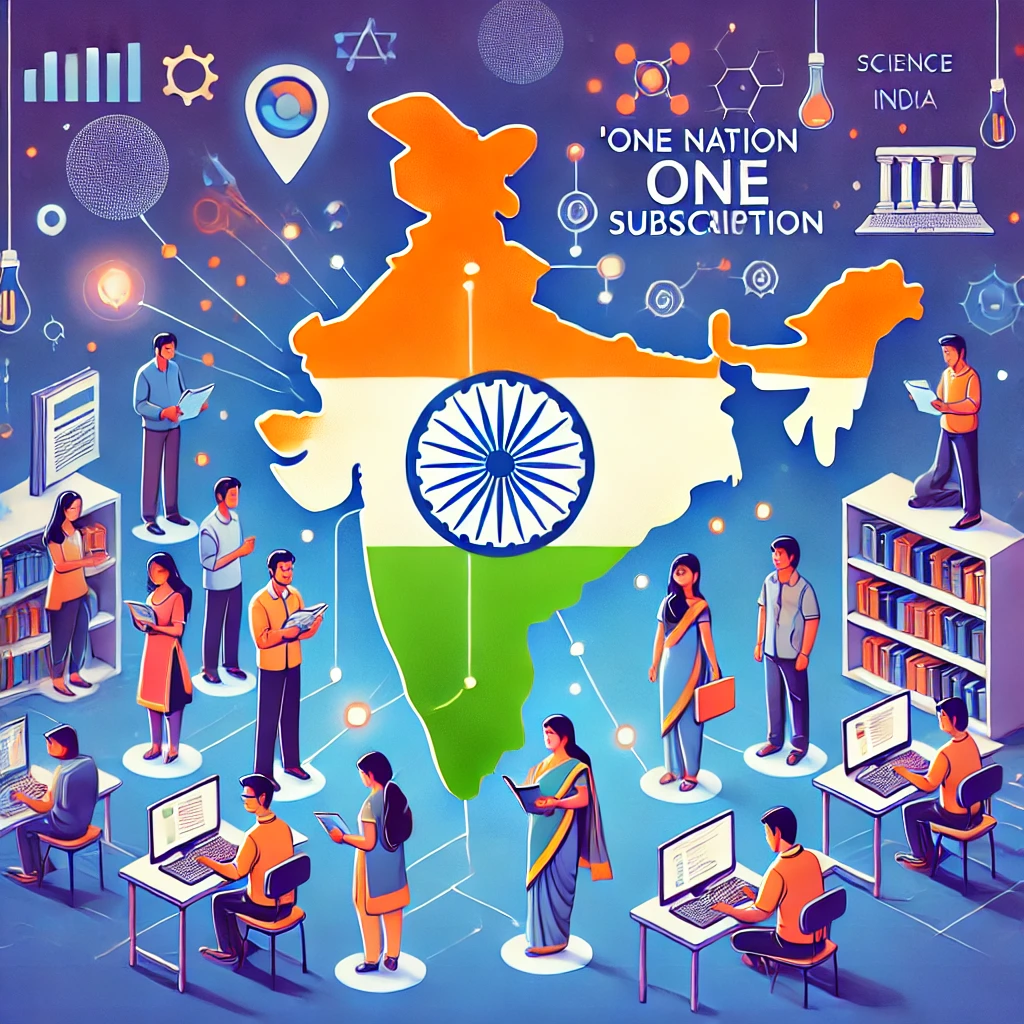Discover India’s “One Nation, One Subscription” initiative aimed at democratizing access to global academic resources for students, researchers, and institutions. Learn about its implementation, benefits, and challenges(https://www.education.gov.in/).

Introduction
India’s One Nation, One Subscription (ONOS) initiative, led by the Ministry of Education, is a transformative program designed to ensure equitable access to scholarly content for all citizens. By securing national licenses for a broad spectrum of academic and scientific publications, the government aims to bridge the gap in research resources, reduce costs, and foster innovation. This ambitious project, set for phased implementation from 2023 onwards, holds the promise of a more inclusive academic ecosystem while sparking debates on centralization and academic freedom.
Understanding the ONOS Initiative
ONOS is a government-led effort to provide nationwide access to digital research publications, including journals, databases, and academic articles. Its primary goal is to consolidate subscription costs and extend benefits to:
- Educational Institutions: Universities, colleges, and research organizations.
- Research Laboratories: Including those under the Indian Council of Medical Research (ICMR) and Indian Space Research Organization (ISRO).
- Individual Citizens: Offering free access to scholarly materials for personal or professional growth.
Key Features:
- Centralized Negotiations: The government will act as a single negotiating body with publishers, streamlining subscription costs.
- Inclusivity: Resources from over 70 publishers in STEM and social sciences will be made accessible.
- Cost Efficiency: Aimed at reducing redundancies in multiple institutional subscriptions.
Advantages of ONOS
1. Cost Savings for Institutions
Currently, academic institutions spend significant resources on individual subscriptions to journals and databases. ONOS eliminates duplication and brings economies of scale by negotiating a single, comprehensive deal with publishers.
2. Equal Access to Resources
Students in rural or underfunded universities often lack access to premium academic resources. ONOS ensures that resources are universally available, bridging the urban-rural divide.
3. Boost to Research and Innovation
With easier access to high-quality research material, ONOS is expected to empower researchers and accelerate innovation across disciplines.
4. Improved Collaboration
A unified platform for accessing resources fosters collaboration among researchers from different institutions, enabling interdisciplinary studies and joint publications.
Challenges and Criticisms
1. Concerns Over Centralization
Critics argue that centralizing subscription control could stifle academic independence. Institutions might lose the ability to tailor resources to their specific needs.
2. Ideological Bias
There are apprehensions that the selection of materials might favor certain ideologies, potentially impacting academic neutrality.
3. Implementation Complexity
Negotiating agreements with a diverse range of publishers and addressing varied stakeholder needs pose significant challenges.
4. Potential Overload on Infrastructure
Nationwide access demands robust digital infrastructure, including reliable internet and platform scalability, which remains uneven across India.
Impact on Different Stakeholders
Students and Researchers
For students, ONOS eliminates barriers to accessing expensive journals, leveling the playing field for academic success. Researchers gain access to a more extensive pool of global knowledge, fostering advanced research.
Educational Institutions
Smaller colleges and universities stand to benefit the most, as they will access materials previously out of reach due to budget constraints.
Publishers
While ONOS guarantees wider dissemination of their content, publishers face reduced individual subscriptions and must renegotiate pricing structures.
The Road Ahead
ONOS is expected to roll out in phases, starting with higher education and research institutions. The government has initiated negotiations with prominent publishers and advised institutions to defer individual subscription renewals. Updates on the framework and licensing agreements are anticipated soon.
Steps for Successful Implementation:
- Transparent Negotiations: Ensuring a fair representation of all stakeholders in selecting resources.
- Infrastructure Development: Strengthening digital platforms to handle increased user demand.
- Feedback Mechanisms: Incorporating feedback from institutions and users for iterative improvements.
Conclusion
The One Nation, One Subscription initiative marks a significant stride toward democratizing knowledge access in India. While it offers substantial benefits in terms of cost efficiency and resource inclusivity, addressing concerns around centralization and implementation is crucial for its success. If executed effectively, ONOS has the potential to revolutionize the academic and research ecosystem in India, fostering a culture of innovation and learning.
For more details, refer to official announcements and stakeholder updates as the project progresses.